A degree is a unit of measurement. Temperature, angle, academic qualification, or comparator; the actual subject is less important than the overriding concept that a degree is a fraction or stage along a continuum.
In Freemasonry, and I will limit myself here to the last 306 years, as I do not wish to get sidetracked with the debate regarding masonry prior to 1717(!), a degree is a stage of development.
We know, beyond all doubt, that the initial documented iteration of ‘modern’ masonry in 1717 contained only two degrees; those of Entered Apprentice and Fellow of the Craft.
The Master was elected from the Fellows, and the Master Mason degree did not enter the body of Freemasonry until 1724, and moreover, the Hiramic myth did not exist in masonry until 1723.
The Holy Royal Arch, deemed by the UGLE for two centuries to be the completion of the Master Mason degree, did not appear until the 1740s.
Recent history indeed, when looked at from an Old-World perspective (although I recognise that the majority of the members of the Allied Masonic Degrees of Canada naturally have been educated within a New-World perspective of historical reference, and so apologise for my Old-World approach!).
Over the following 150 years, thousands of further degrees were created, most of which have fallen into abeyance, as the evolving milieu of the masonic environment developed into what we have inherited in the greater panoply of modern Freemasonry.
Some masons will, most unfortunately, insist that Freemasonry comprises nothing more than the three degrees of the Craft, and nothing else is important, valuable, nor genuine. This belies their lack of understanding that originally, Freemasonry did not even possess these three degrees.
A Grand Master of a Grand Lodge may, conceivably, only be a 3rd degree mason, without any requirement that he should have been exposed to the further avenues available within the greater family of masonic orders.
IMAGE CREDIT: the square magazine digital collection – Attribution 4.0 International (CC BY 4.0)
After 26 years as a mason, I still cannot understand this dogmatic, and essentially faith-based, tunnel vision. If, as we are informed, Freemasonry is a Progressive Science, then why do we cling to an archaic and incorrect concept of what it actually encompasses?
Are we not directed to extend our researches into the hidden mysteries of Nature and Science? What else are the ‘Additional’ degrees, but further development along this masonic philosophical path? To be admonished to progress and develop, and simultaneously be advised that there is nothing greater than the Craft, is one of the greatest oxymorons in the whole of masonry.
I tend to speak in allegory, as my profession regularly requires me to impart often complex concepts to those who do not have knowledge of the technical aspects of my craft.
Therefore, out of habit, I will use this approach to explain my thoughts upon this critically important subject, which almost all of you here present will fully understand, having received at least 7 degrees to be present at this meeting (our Master Mason guests temporarily are exempt from this comment!).
Therefore, close your eyes, and imagine the following:
Walking on a dark autumnal evening in the countryside of rural England, the temperature plummets to zero, the wind starts to howl, and it begins to rain. Bitterly cold and penetrating rain, chilling you to the bone.
Cold, windswept, and drenched, you begin to become concerned for your safety and your survival, such is the oppressive nature of this weather, and you start to look for solace.
Less pressured initially, but as time continues, with more desperation, as you recognise that there must be something far better than this current situation that you are in.
To your rejoicement, you see lights in the distance, and upon approaching them, discover a large mansion, brilliantly lit, welcoming, and all that you could ever hope for at this immediate moment in time.
Upon knocking, the unlatched front door freely swings open, you enter inside, and find yourself in the most elaborate entrance hall that you have ever seen in your life.
You close the door behind you, and are now safe from the cold, wind, and rain. This hallway is massive, warm, sumptuous; filled with comfortable furniture where one can sit or recline, and there is even a table with food and drink upon it.
This is your solace, and the succour that you were seeking.
Your instincts tell you that you should probably wait for the owners of this home to greet you and invite you further in, but after some time, they do not appear.
Looking around, you see a black and white chequered marble floor, with a stairway directly opposite you, and you count 33 steps up to a most impressive first floor.
Many doors open off all of the walls of this elaborate foyer, each with a distinctive character and style, towards the rooms beyond.
IMAGE CREDIT: the square magazine digital collection – Attribution 4.0 International (CC BY 4.0)
Through one door, separated by a sheer curtain, you see the blazing warmth of a fire, in an elaborate and sumptuous sitting room.
Through another, you hear the sounds of a meal being prepared, and you perceive the aroma of the food cooking, and hear the sounds of friends talking.
One doorway leads to a dining room where you hear a number of people engaged in deep intellectual discussion.
A further doorway leads into the greatest library that you could ever imagine. From what you have read previously, and understanding the historical provenance of the building, you are certain that if you search diligently therein, there will be secret doors in that library, leading to obscure and rare treasures, if you seek hard and long enough.
Another door, whilst locked, leads to a room where you hear the voices of women, also in animated discussion.
This mansion clearly has the greatest number of rooms you could ever possibly conceive that could exist within any single building.
You begin to imagine what lies beyond, dreaming of lush conservatories, quiet areas dedicated to particular pursuits, long corridors lined with portraits of forebears and scions, sumptuous bedrooms, quiet studies, and rooms devoted to recreation and entertainment.
Some doors within are locked. Some require access only through other rooms. Some you may have to be shown how to access them, or even invited within. Some of the areas of this mansion appear to be only for men, some only for women, and some for both sexes.
A friend and brother who I highly respect suggested that the rooms and permutation of this mansion might be perceived differently depending upon our own viewpoint and interpretation, and that we may not see the same layout as others might.
Returning to the grand entrance hall, you suddenly notice that there is another present in the entrance hall alongside you.
He too was obviously cold and wet, and also entered to shelter from the freakish autumnal storm, a few minutes or so before you. He is drying off now, and more familiar with the foyer, having been here for some time already.
Confidently, he tells you that this entrance hall is everything; it is what you were looking for, and that you can find all that you sought here, and there is no reason to even venture deeper into this most welcoming mansion. That you can find everything you desire in this entrance hall.
He suggests that you study the cornice , the door frame, the marble floor, the balustrades, and the decorations of this room, as it will tell you all that you ever need to know about this mansion. This space is all that you ever can possibly need, or so he states.
This is what we know and others may deny. That Craft Freemasonry is the first answer to what we sought when we were in privation is not in question. It is indeed all that we needed to satisfy our most urgent and pressing primary needs to allegorically shelter from the storm.
But it absolutely is not all; and it may not satisfy our secondary interests and desires, and most likely does not provide all that we may require in terms of sustenance, nor our ongoing development.
It is a step, an intermediary, but, just like an airport, it is not the most valuable destination that we may be aiming to reach. It is however critical, and we will pass through it constantly in our life and explorations within the mansion.
IMAGE CREDIT: the square magazine digital collection – Attribution 4.0 International (CC BY 4.0)
Should we however listen to the one who found solace shortly before we did? He has a few minutes more experience of the space we both currently occupy, after all!
Should we follow his lead, and remain within the entrance hall forever, and deny those who knock and enter after us the chance to further enrich their own lives and their own interests by imperiously declaiming that this entrance hall was all that they were seeking, and so categorically is everything they will ever need?
Or should we, carefully, respectfully, and appropriately, seek to experience all that this most perfect mansion has to offer, and encourage others to do so also, according to their own inclinations?
Some rooms will not be comfortable or interesting to us. We may go through each room in the mansion, and find only a few places that are truly where we wish to spend time. Some will find the first room that is perfect to them, and stay there, never moving on, as they have found all that they could ever dream of.
Those individuals are not to be denigrated; they have found their own ideal, and are comfortable there. That room has provided all that they will need. It is their own particular home.
Others will explore and seek through the whole building, to see all that it contains, so that they can determine the place that is most right for them, based upon their synthesis of what is available to themselves.
Some rooms one will enter, and only through effort, may a further doorway be discovered, leading to another secret chamber beyond, whether it be by personal search, or by invitation by another who recognises the desires and inclination of the seeker.
Each and every chamber in this immense building is perfect, and each will find their own most desired room, or rooms, to spend the rest of their days in.
Open your eyes now, and return to reality.
This analogy simply reflects my interpretation of what the greater family of masonic orders represents. The hallway is our entrance, and is a room we will continue to pass through during the entire time that we dwell within.
It is not inferior, in fact, it is the portal and the central area from which we can return when we find that we do not care for the direction that we have taken within this mansion. Walking through it, we have a duty to welcome new entrants, sheltering from their own personal storms.
Many will ensure that it is ready and prepared to accept anyone who knocks on the door, due to their own deepest belief that this is the most important part of the building. We cannot ever ignore what the porch stands for, nor can we ever abandon it.
It is of immense value, but it is not, and never can be, the sum total of everything. To argue this is to ignore the greatest efforts of the Architect of this sublunary abode.
Through my own personal journey, possibly due to my obsession to understand everything possible, I have experienced nearly all that masonry has to offer. Having received or been conferred something of the order of 300 different degrees, I have taken more steps than I can possibly recount.
I have found those few rooms that are critically valuable to me, and will spend the rest of my life dwelling therein.
Those myriad other rooms within the building are not as important to me personally, but I recognise how much value they have for those who are sympathetic to their contents and find them to be ideal for their needs.
Whether one enters, and is satisfied with the initial shelter that one first sought; searches through the mansion until they find the first room they truly feel comfortable in; or analyses the whole building to find their most perfect place does not matter. We are all on our own personal journeys, and they are our journeys alone.
We have no right to ever inflict our own personal beliefs on others, but have the duty to inform the new entrants who are asking where they can warm up completely where the hottest fire that we have discovered in the building actually may be located.
We are signposts for others, but without having explored the whole building, or at the very least, a significant portion of it, how can we possibly hope to advise or guide another?
IMAGE CREDIT: the square magazine digital collection – Attribution 4.0 International (CC BY 4.0)
So, returning to the title of this somewhat self-indulgent paper, is the progression through the degrees a Right (sic) or a Privilege?
I would suggest that it is both. It is a privilege granted to each and every man or woman who enters through the door seeking shelter and solace. It however requires diligent effort and a desire to seek and explore, and to understand all that is offered to the one so inclined.
Is it a right? Absolutely… all paths are, and always will, remain open to the one with a true heart, and the deepest desire to seek Truth and the fullest understanding of the sum total of that glorious mansion, created by the Greatest Architect of All.
We have a duty to the Great Architect of the Universe, to our Brethren, and to ourselves. To the Most High, to make the best use of what he has provided to us, to accomplish all that we can within what he has created for us.
To our Brethren, to inspire, lead, guide, and encourage, and NEVER to discourage their genuine inclinations to explore and utilise this most perfect abode according to their own particular inclinations.
Most importantly, to ourselves. Not to ignore all that exists within, not to deny and avoid the efforts needed to fully explore all that exists, but to strive to progress and utilise those privileges that we have been given, in order to justify our right to do so.
If one becomes a mason, simply collecting degrees and titles, and use them only to exert our own perceived supremacy over other less experienced masons, then that individual has done nothing of value, has not contributed to the assistance of others, nor has utilised the greatest gift given to us all, and is essentially a parasite upon the system; never giving, simply taking.
To give back, to those starting on their own personal journeys, is the only ethical expectation that a true mason can ever be held to account for.
Follow your heart, and explore the avenues open to you, that you feel are important to investigate. When others ask, give them an unbiased analysis of what you have learned.
Honestly express your lack of knowledge of certain paths, and give a genuine representation of those that you are acquainted with, regardless of your own personal impressions.
That is simply fraternal, charitable, and truthful behaviour. The Three Pillars of Freemasonry, which we have sworn to perpetually uphold.
Article by: Matt D.A. Fletcher
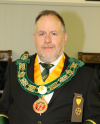
Matt DA Fletcher is the Sovereign Grand Master of the Allied Masonic Degrees of Canada; the Director-General of Studies of the Societas Rosicruciana in Anglia as well as Chief Adept for the SRIA Province of British Columbia & Yukon; is a past Grand Superintendent of the Supreme Grand Chapter of Royal Arch Masons of British Columbia & Yukon; and is or has been a member of almost every regular masonic body in current existence.
Initiated into the Three Pillars Lodge No.4923 in London, and a mason for almost 30 years, he is a subscribing member of bodies in the UK, Canada, the US, Brazil, Belgium & France. He also holds senior positions in a number of Martinist orders and bodies, and is deeply involved in the esoteric avenues beyond regular Freemasonry.
His primary objective is to increase the academic content within Freemasonry, such that we can practically expand and apply the knowledge that we learn in the Craft, and engage with and assist our Brethren more fully on their own personal masonic journey.
In the mundane world, he is a practising orthopaedic surgeon in rural Canada with a strong background in surgical research, and has published and presented over 350 academic and esoteric papers, chapters, and books.
Recent Articles: membership
 A Rose by any other Name may not be the same Explore the profound distinctions between conferred and transmitted Masonic degrees with Bro. Scott Wisdahl. Delve into how presentation quality, personal impact, and setting shape these rituals, and consider the potential for digital adaptations in modern Masonic practices. Join the discussion on enhancing the Masonic journey and preserving its essence. |
 Progression through the Degrees; a Rite or a Privilege? Exploring the layered journey of Freemasonry, Matt DA Fletcher probes the essence of progression—whether it's a mere rite or a privileged path. Delve into a nuanced perspective where every degree is not just a milestone but a fraction of a grander continuum. |
 Quantity vs Quality within the world of Freemasonry Dive into the compelling debate of quantity vs quality within the world of Freemasonry. Discover the transformative focus on attracting members aligned with the institution's values, promising not only growth but quality growth. High-value individuals assure sustainable development with their commitment to serving the brotherhood. |
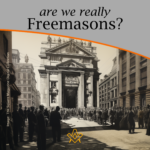 Maybe Freemasonry has opened its doors too wide. Perhaps some have not understood that the survival of Freemasonry in order to achieve its sublime purpose lies not in the number of members it has, but in their quality. Maybe we need less members and more Freemasons. Less men in Freemasonry and more Freemasonry in men. |
 What is ritual and why is it important? P1 Delve into the profound world of Freemasonry rituals and their significance. This insightful piece unravels the underlying importance of rituals, their impact on participants, and the transformative power they hold. Uncover why these centuries-old traditions remain integral to Masonic practice today. |
 Could Freemasonry be helpful for young men? Unravel the Masonic Brotherhood: Could Freemasonry be the antidote to modernity's challenges for young men? Dive in as we explore the Masonic world, its principles, camaraderie, and how its traditional rituals could help forge stronger identities in an increasingly complex world. |
 Discover the remarkable benefits of Lodge Meetings on your well-being. From fostering connections to combating stress, learn how these male-oriented gatherings offer an antidote to anger, hunger, isolation, and exhaustion. Dive into the power of shared experiences, understanding, and camaraderie. Your key to improved mental health awaits inside. |
 Tutorial for a Worshipful Master Unlock the Secrets to Leadership Mastery in our Worshipful Master's Tutorial! Brother Antonio Biella shares step-by-step guidance for Masonic Lodge leaders on honing their roles, duties, and future vision. Discover how to drive growth and engagement in your Lodge, setting ambitious goals and inspiring member participation. |
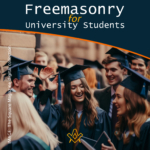 Freemasonry for University Students What are social skillset challenges facing students when they graduate from university ? |
 How the Core Values of Freemasonry; Brotherly Love, Relief and Truth Can Be Applied to Improve Productivity For Entrepreneurs |
 Why I became a Freemason: a personal journey of self-improvement Salik Tariq shares his reasons for becoming a Freemason – a journey of self-improvement, finding a community, and personal growth. |
 Freemasonry: Coming out of the Cloisters This paper examines the fundamental tensions on the lines of religion, gender and political ideology that exist in some jurisdictions of Freemasonry. It is on the first of these, religion, on which he makes an initial and exploratory focus. - by Gerald Reilly |
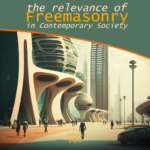 The Relevance of Freemasonry in Contemporary Society The role of Freemasonry in contemporary society is an indispensable one. Despite the challenges and misconceptions it faces, the organization remains steadfast in its humanitarian pursuits and commitment to personal growth and self-betterment. Through its efforts to evolve and adapt to the changing needs of its members and the world, Freemasonry continues to be a vital force in shaping a better future for all. |
 Has Freemasonry managed to revive and thrive after the darkness of the Pandemic? Robert Lomas gives us some (promising) insights. |
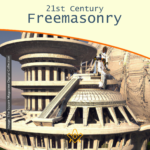 21st Century Freemasonry – a Sign of the Times? A recent article in The Times of London highlighted the dilemma 21st Freemasonry is facing. In this article one Master Mason shares his views of the strengths, and the challenges of modern Masonry. |
 A concept that is both based on our Freemasonic rituals and what we understand as teamwork. This article by Chris Batty examines why teamwork in the lodge is the network that binds us. |
 Lebanese Freemasonry has been both witness to and sometimes participants in turbulent events and forces, which shaped and influenced their world. |
 Is a Masonic Tradition Necessary? Dealing with Masonic tradition is a complex subject that requires careful analysis in order to reach a balanced point on the best etymological definition and the set of discourses and practices, which often end up being presented as such, without, however, presenting bases that support them, often serving only as a discourse that restricts and controls the masses. Fernando Rodrigues de Souza debates this complex subject. |
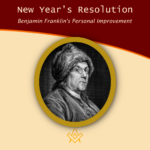 New Year's Resolution with Benjamin Franklin's Personal Improvement Are you ready for a new year's resolution challenge ? To accomplish his life’s goals, at 25 ( around 290 years ago ), Benjamin Franklin developed and committed himself to a personal improvement program that consisted of 13 virtues. You are invited to join me in practicing his daily routine for 2023. |
 The Alberta Masonic Higher Education Bursary Fund is to help the next generation of Albertans, our children and grandchildren, to obtain the education they need to lead successful lives and contribute to the welfare of mankind. As you can see from this little lesson of our history, education is truly a Masonic obligation. |
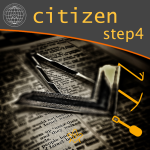 To be a Better Citizen of the World: Step 4 A value proposition for Pure Ancient Masonry as defined in terms of Citizenship; the allegories, symbolism and lessons are a blueprint for all Freemasons to be a better citizen of the world. |
 To be a Better Citizen of the World; Step 3 A value proposition for Pure Ancient Masonry as defined in terms of Citizenship; the allegories, symbolism and lessons are a blueprint for all Freemasons to be a better citizen of the world. |
 In connection with recent article about Freemasonry in the metaverse, we look at how an Egregore applies to Freemasonry in a digital world |
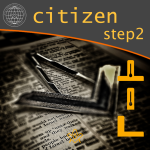 To be a Better Citizen of the World; Step 2 A value proposition for Pure Ancient Masonry as defined in terms of Citizenship; the allegories, symbolism and lessons are a blueprint for all Freemasons to be a better citizen of the world. |
 There are many brotherhoods in the world, and Freemasonry is one of the most significant and successful of them all. This article will be the focus two questions: the importance of brotherhood ? and is there room for improvement in Freemasonry? |
 Intergenerational relations in Masonry: challenges and possibilities Backed with scientific research, Professor Luiz Neto and Professor Alexandre Braune investigate the Intergenerational relations in Freemasonry and explores the challenges and opportunities. |
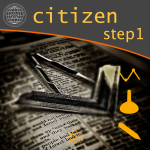 To be a Better Citizen of the World; Step 1 A value proposition for Pure Ancient Masonry as defined in terms of Citizenship; the allegories, symbolism and lessons are a blueprint for all Freemasons to be a better citizen of the world. |
 The Masonic Temple is a platform where both Freemasons and non-Masons, enthusiasts of real art and spiritual growth, connect to the new world of the metaverse. A Freemasonry in the metaverse project, based regular freemasonry principles. |
 Opportunity to fix the Sussex fudge Is there a value proposition for members, that under English Constitution Freemasonry, we have a 4 part offering; Entered Apprentice, Fellowcraft , Master Mason and Companion, conducted in a single craft lodge ? |
 Value Proposition of Freemasonry In addressing declining lodge membership and lack of attendance, we need to assess the value it offers to members. What is value, and what does it mean to you? |
 What is a 'Millennial' and what do they want from Freemasonry? You'll be surprised at the answers. |
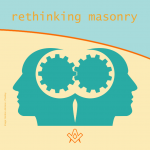 Let us help answer a fundamental question, from a confused newly raised brother asking “What does it all mean and where do I go from here?” |
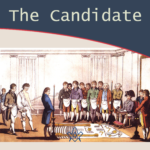 Written in 1930, much of the advice is still relevant today - although some may provoke further thought or debate! |
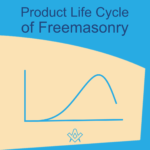 Product Life Cycle of Freemasonry An inconvenient truth about the product life cycle of Freemasonry |
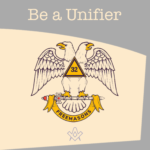 Freemasonry is local. This is where we need to start. We start with our Facebook friends, our neighbours, our colleagues, our lodges… |
 Freemasonry in the time of pandemic The Rule of Six. Localised lockdowns. Second wave? What do we do now?! The answer is simple - engage with members, promote Masonic education and get thinking outside the lodge. |
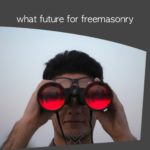 The current functioning of the Masonic movement has some positive aspects and others that are blatantly backward and counterproductive. |
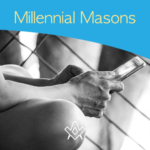 What is a 'Millennial' and what do they want from Freemasonry? You'll be surprised at the answers. |
 How to improve your Lodge Membership Marketing Program. |
 The Anti-Social Impact of Social Media The 'dark side' of social media and its negative effect on our mental health |
 If Freemasonry cannot meet, is this an opportunity to make a change to how we do things? |
 Has your lodge accepted an unknown candidate from the internet? Third in a three-part series looking at the process to accepting candidates via the internet |
 Is the brother of a brother a brother ? Rights to visit - recognition and regularity re-evaluated. |
 The second article in the Unknown Candidate series - Outlining the social media marketing process to attract the unknown candidate to make that first enquiry |
 Ask a random Freemason the purpose of Freemasonry and the likely response will be to “make good men, better”. Research undertaken by James Justin Davis Pennsylvania Academy of Masonic Knowledge. |
 Has your lodge accepted an unknown candidate from the internet? First in a three-part series looking at the process to accepting candidates via the internet |
 Mental Health - Raising its awareness and how we as Freemasons throughout the entire UK can help our fellow brethren and their families when they need it. |
 Share one thought why freemasonry is relevant today - Open question posted on Facebook with a very wide range of responses from Brethren across the globe |
 The Tipping Point of Freemasonry Why do brothers lose interest in Freemasonry and what can we do to get that spark back? At what moment did our own thoughts begin to waver? |
masonic knowledge
to be a better citizen of the world
share the square with two brothers

click image to open email app on mobile device









